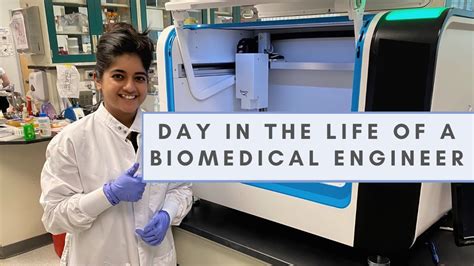Biomedical research is a fascinating and ever-evolving field that lies at the intersection of biology, medicine, and scientific inquiry. In this blog post, we will delve into the world of biomedical research, exploring its various facets and its crucial role in advancing medicine and improving human health. From the basics of biomedical research to the intricate techniques and methods used, we will uncover the inner workings of this field. We will also examine the ethical considerations underpinning biomedical research, as well as the significance of clinical trials in testing new treatments and interventions. Additionally, we will explore the link between biomedical research and drug development, disease prevention, and the interdisciplinary nature of this field. Finally, we will look to the future, discussing the potential advancements and breakthroughs that await in the world of biomedical research. Join us on this enlightening journey into the science of life.
Table of Contents
Understanding the Basics of Biomedical Research
Biomedical research is a field of study that focuses on advancing medical knowledge and improving human health through scientific experimentation and investigation. It encompasses a wide range of disciplines, including biology, chemistry, genetics, pharmacology, and more, all with the common goal of understanding the function of the human body and developing new treatments and therapies for various diseases and conditions.
Researchers in the field of biomedical research work on understanding the fundamental processes that govern the human body, from the molecular level to the whole organism. This involves studying the role of genes, proteins, and other biological molecules in health and disease, as well as the interactions between different systems within the body.
One of the key principles of biomedical research is the use of evidence-based methods and rigorous experimentation to test hypotheses and draw conclusions. This often involves conducting controlled laboratory experiments, clinical trials, or epidemiological studies to gather data and analyze the results to make informed decisions about the safety and efficacy of medical interventions.
Overall, understanding the basics of biomedical research involves appreciating the complexity of the human body, the importance of scientific inquiry and evidence-based practice, and the potential for advancing medicine and improving human health through innovative research and discovery.
The Role of Biomedical Research in Advancing Medicine
Biomedical research plays a crucial role in advancing medicine and improving healthcare outcomes for patients. It encompasses a wide range of scientific disciplines and methodologies aimed at understanding the underlying mechanisms of diseases, developing new diagnostic tools, and discovering innovative treatments.
Through biomedical research, scientists and healthcare professionals are able to gain a deeper understanding of the human body and its intricate systems, leading to the development of more targeted and effective therapies for a variety of medical conditions. This research is essential for driving progress in medicine and improving patient care.
Furthermore, biomedical research also plays a key role in fostering collaboration and innovation within the healthcare industry. By bringing together experts from different fields, such as genetics, pharmacology, and biochemistry, researchers are able to leverage their collective knowledge and expertise to tackle complex medical challenges and develop groundbreaking solutions.
Ultimately, the impact of biomedical research on advancing medicine cannot be overstated. It serves as the cornerstone for medical progress, driving innovation and improving the quality of care for patients around the world.
Investigating the Impact of Biomedical Research on Human Health
Biomedical research plays a crucial role in advancing our understanding of human health and disease. Through the study of biological processes, genetics, and molecular mechanisms, researchers are able to uncover valuable insights that can lead to the development of new treatments and therapies.
One of the key impacts of biomedical research on human health is the discovery of new medications and medical interventions. By conducting studies on the underlying causes of diseases, scientists are able to identify potential targets for drug development, ultimately leading to the creation of life-saving pharmaceuticals.
Furthermore, biomedical research also addresses public health concerns by providing valuable information on disease prevention and control. Through epidemiological studies and population-based research, scientists are able to identify risk factors for various illnesses and develop strategies for disease prevention and early detection.
Overall, the impact of biomedical research on human health is far-reaching, with the potential to improve quality of life, reduce mortality rates, and address healthcare disparities.
Unveiling the Techniques and Methods Used in Biomedical Research
Biomedical research is a multifaceted field that employs various techniques and methods to study biological processes, diseases, and treatments. One of the key methods used in biomedical research is microscopy, which allows scientists to observe and analyze cells, tissues, and organs at a microscopic level. This technique helps researchers to understand the structure and function of biological systems and is essential for making important discoveries in the field of medicine.
Another important technique used in biomedical research is molecular biology, which involves the study of biological molecules such as DNA, RNA, and proteins. This method allows researchers to investigate genetic and molecular mechanisms underlying diseases, as well as to develop new diagnostic tools and therapies. Molecular biology techniques, such as PCR and DNA sequencing, have revolutionized the way we study and understand human health and disease.
Furthermore, biomedical research often involves the use of animal models to study human diseases and treatments. Animal models provide valuable insights into the biological processes underlying diseases and help researchers to develop and test new drugs and therapies. However, ethical considerations and animal welfare are important factors to consider when using animal models in biomedical research.
In addition to these techniques, biomedical research also relies on advanced imaging technologies, computational tools, and bioinformatics methods to analyze and interpret complex biological data. These methods help researchers to visualize and understand biological processes, as well as to identify potential targets for drug development and personalized medicine. Overall, the techniques and methods used in biomedical research play a crucial role in advancing our understanding of human health and disease, as well as in developing new treatments and therapies.
Exploring the Ethical Considerations in Biomedical Research
When it comes to biomedical research, ethical considerations are of paramount importance. Researchers involved in biomedical studies are responsible for ensuring that their work is conducted in an ethical manner, with the well-being of human subjects and participants as a top priority.
One of the key ethical considerations in biomedical research is the need to obtain informed consent from participants. This means that individuals must be fully informed about the nature of the study, including any potential risks or benefits, and must voluntarily agree to take part. Informed consent ensures that participants are aware of what they are getting into and that their rights and autonomy are respected.
Another ethical consideration is the protection of vulnerable populations. This includes groups such as children, the elderly, and those with cognitive impairments, who may be at greater risk of exploitation or harm. Additional safeguards must be put in place to ensure that these individuals are not unduly pressured to participate and that their well-being is adequately safeguarded.
Furthermore, ethical considerations extend to the use of animal subjects in biomedical research. Researchers must demonstrate that the potential benefits of the study outweigh any potential harm to the animals involved, and must adhere to strict guidelines regarding the treatment and care of these subjects.
Examining the Significance of Clinical Trials in Biomedical Research
Clinical trials play a crucial role in the field of biomedical research, serving as the backbone of the development and validation of new medical treatments and interventions. These trials are designed to test the safety and efficacy of new drugs, devices, or treatment approaches in human subjects, providing valuable data that informs the decision-making process for healthcare professionals and policymakers.
One of the key benefits of clinical trials is their ability to uncover potential health risks and side effects associated with new treatments. By subjecting participants to carefully monitored protocols, researchers can identify and address any adverse reactions to the intervention, ensuring the safety of future patients who may benefit from the treatment.
Furthermore, clinical trials help to establish the effectiveness of novel medical interventions, providing evidence-based data that is essential for gaining regulatory approval and widespread acceptance in the medical community. This process of validation is critical for ensuring that patients receive treatments that have been rigorously tested and proven to deliver the desired health outcomes.
Overall, clinical trials are a vital component of the biomedical research landscape, playing a pivotal role in the advancement of medicine and the improvement of public health. By carefully examining the significance of clinical trials, we can appreciate the immense impact that these studies have on shaping the future of healthcare and disease management.
Unraveling the Link Between Biomedical Research and Drug Development
Biomedical research plays a crucial role in the development of new drugs and medications. The link between biomedical research and drug development is undeniable, as the former provides the scientific foundation for the discovery and testing of new pharmaceutical products.
Through biomedical research, scientists are able to gain a deeper understanding of diseases and health conditions, which in turn, enables them to identify potential drug targets and pathways for intervention. This knowledge serves as the basis for the development of new drugs that can effectively treat and manage various medical conditions.
Furthermore, biomedical research is essential in the preclinical and clinical stages of drug development. In the preclinical phase, researchers utilize biomedical findings to identify promising drug candidates and assess their safety and efficacy in laboratory experiments and animal studies. This process helps to narrow down the selection of potential drugs for further development.
During the clinical phase, biomedical research is instrumental in testing the safety and effectiveness of new drugs in human subjects. Clinical trials, which are a crucial component of drug development, rely on biomedical research to design study protocols, collect and analyze data, and draw conclusions about the drug’s impact on patients.
Shedding Light on Biomedical Research’s Contributions to Disease Prevention
Biomedical research plays a crucial role in disease prevention, as it focuses on understanding the underlying causes of various diseases and developing effective strategies to combat them. One of the key contributions of biomedical research to disease prevention is the development of vaccines. Through extensive research and testing, scientists have been able to create vaccines for numerous diseases, significantly reducing their prevalence and impact on public health.
In addition to vaccines, biomedical research also contributes to disease prevention through the identification and understanding of genetic and environmental factors that contribute to disease development. By studying the genetic and environmental components of diseases, researchers are able to develop targeted interventions and preventive measures to reduce the risk of disease occurrence.
Furthermore, biomedical research plays a critical role in the development of public health policies and interventions aimed at disease prevention. By providing evidence-based data and insights, biomedical research informs policymakers and public health officials on the most effective strategies for preventing and controlling diseases, ultimately leading to improved public health outcomes.
Overall, the contributions of biomedical research to disease prevention are invaluable in our efforts to create a healthier and disease-free world. Through the development of vaccines, understanding of disease risk factors, and informing public health policies, biomedical research significantly contributes to the ongoing battle against various diseases, ultimately leading to better health outcomes for individuals and populations.
Analyzing the Interdisciplinary Nature of Biomedical Research
Biomedical research is a complex field that encompasses a wide range of scientific disciplines, all working together towards a common goal: improving human health. The interdisciplinary nature of biomedical research is essential for tackling complex health challenges and driving innovation in medicine.
One of the key aspects of the interdisciplinary nature of biomedical research is the collaboration between different scientific fields, such as biology, chemistry, genetics, pharmacology, and engineering. Each of these disciplines brings unique expertise and perspectives to the table, allowing researchers to approach health problems from multiple angles and develop comprehensive solutions.
Collaboration is at the heart of interdisciplinary biomedical research. By working together, researchers can leverage their individual strengths to address complex health issues more effectively. For example, a biologist may work with a chemist to develop a new drug, while an engineer may collaborate with a geneticist to create innovative medical devices.
The interdisciplinary nature of biomedical research also extends to the integration of different methodologies and technologies. For instance, researchers may combine molecular biology techniques with computational modeling and imaging technologies to gain a more comprehensive understanding of biological processes and develop new treatments.
Future Prospects: Advancements and Breakthroughs in Biomedical Research
As we look to the future of biomedical research, there are numerous advancements and breakthroughs on the horizon that hold promise for improving human health and well-being. One such area of potential advancement is in the field of gene therapy, where researchers are working to develop techniques to modify or replace faulty genes in order to treat a wide range of diseases and disorders.
Another exciting prospect is the development of personalized medicine, which aims to tailor medical treatments to an individual’s unique genetic makeup, lifestyle, and environment. This could lead to more effective and targeted treatments, as well as a better understanding of disease risk and prevention.
Advancements in technology, such as the use of artificial intelligence and machine learning, are also expected to play a significant role in the future of biomedical research. These tools have the potential to analyze vast amounts of data, identify patterns, and make predictions that could revolutionize our understanding of disease processes and treatment options.
Overall, the future of biomedical research holds great promise for advancing our understanding of human health and disease, as well as for developing new and innovative approaches to diagnosis, treatment, and prevention.





